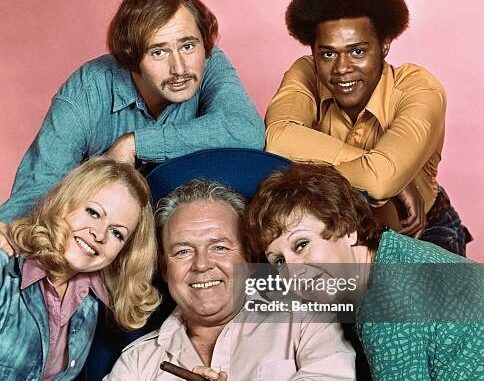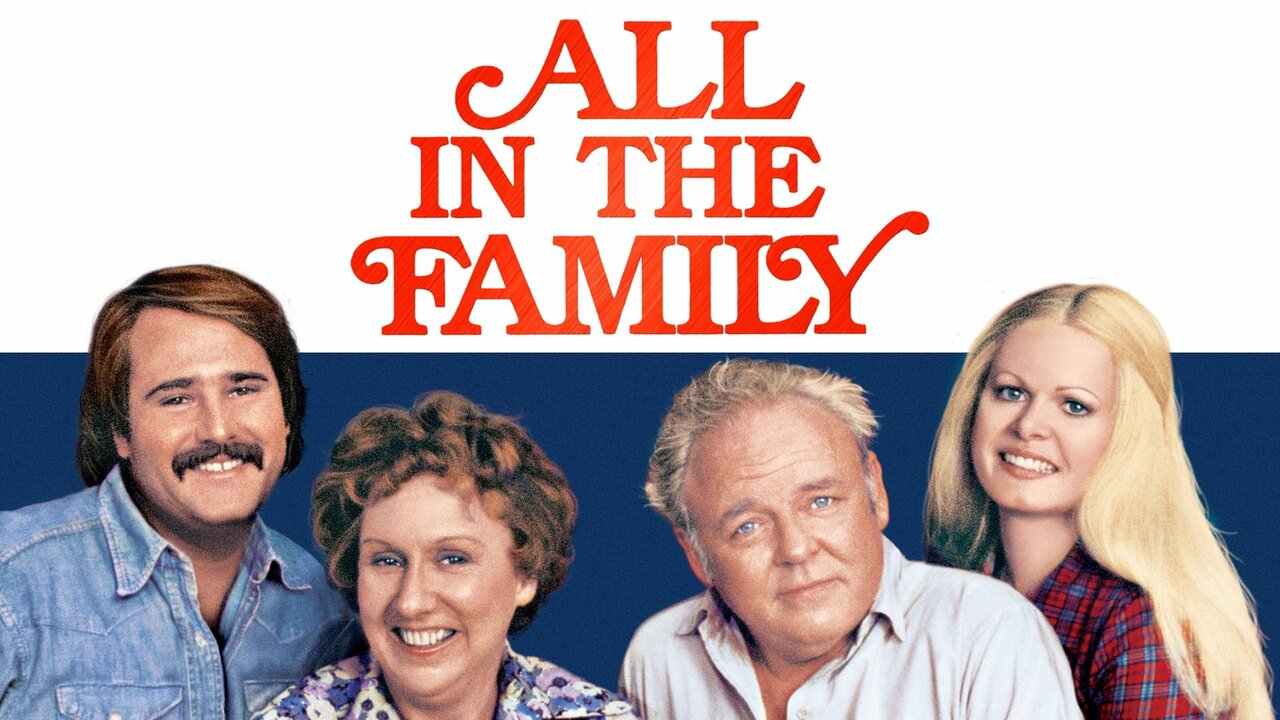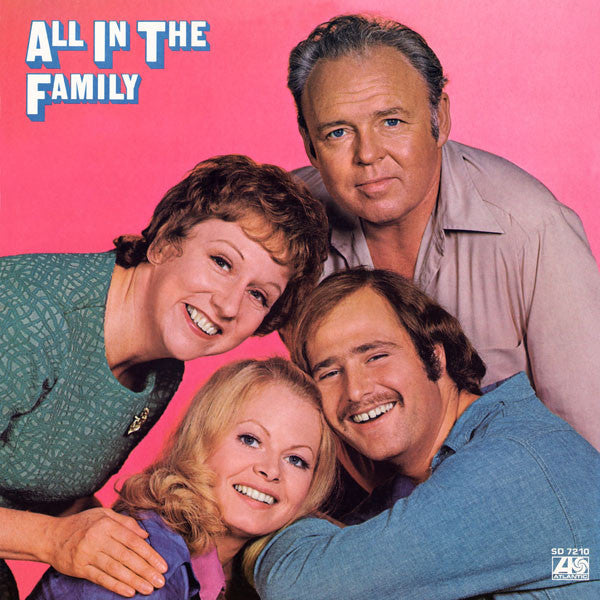
How Carroll O’Connor Kept All in the Family Going When No One Else Wanted To
All in the Family is a show that’s known for pushing boundaries, tackling controversial topics, and forever changing the television landscape. Yet, as revolutionary as it was, All in the Family wasn’t a guaranteed success from the start. In fact, it almost didn’t make it past its first season. But there was one person whose commitment to the show kept it alive when no one else believed in its future—Carroll O’Connor, the actor who portrayed the irascible, bigoted Archie Bunker.
O’Connor’s role as the beloved (yet controversial) head of the Bunker family has become iconic. But what many fans don’t know is that O’Connor’s behind-the-scenes efforts played a crucial role in keeping All in the Family on air, even when its future seemed uncertain. Let’s take a look at how Carroll O’Connor, through sheer determination and personal investment, saved the show from cancellation and cemented its place in television history.
The Birth of All in the Family and Its Initial Struggles
When All in the Family first aired in 1971, it was unlike anything American audiences had ever seen. The show’s biting humor, politically charged content, and unapologetic portrayal of the Bunker family’s dysfunction made it both groundbreaking and controversial. Created by Norman Lear, All in the Family centered on the character of Archie Bunker, an outspoken, prejudiced working-class man whose views clashed with the more liberal perspectives of his family members, especially his son-in-law Mike “Meathead” Stivic (Rob Reiner).
Despite the show’s innovative approach, All in the Family faced resistance from both critics and audiences. Its raw, unfiltered discussions on race, gender, and politics were seen as too edgy for primetime television. Advertisers were hesitant to align themselves with the show, fearing backlash from viewers who were uncomfortable with its controversial content. As a result, All in the Family struggled with low ratings early on and was in danger of being canceled after its first season.
The Role of Carroll O’Connor: A Commitment Beyond the Script
While many actors would have understandably been discouraged by the low ratings and public backlash, Carroll O’Connor was unwavering in his belief in the show’s potential. O’Connor was not only a skilled actor—he was deeply committed to his role as Archie Bunker and to the show’s overall mission. As a result, O’Connor took matters into his own hands to ensure that All in the Family would continue.
One of O’Connor’s first big moves was to take a personal interest in the show’s direction. Early on, he understood that Archie’s character wasn’t just a one-note stereotype of a bigoted man, but a complex, layered individual. O’Connor believed that Archie’s flaws, bigotry, and contradictions were the key to making the character and the show resonate with audiences. He worked closely with Norman Lear and the writers to deepen the character, making sure that while Archie’s views were offensive, they were also portrayed with nuance and depth.
O’Connor’s understanding of the character and his willingness to challenge societal norms through comedy were essential to the show’s success. But it wasn’t just his performance on-screen that kept All in the Family alive—it was his actions behind the scenes that really made the difference.
1. Advocating for the Show’s Future
When the show’s future looked uncertain, O’Connor didn’t sit idly by. He actively advocated for All in the Family to be given a chance to grow. He reached out to network executives, pushed for better marketing, and argued that the show’s themes were more relevant than ever. O’Connor believed that the issues explored in the show—race, class, gender—were things that the American public needed to talk about, not shy away from.:max_bytes(150000):strip_icc()/all-in-the-family_0-88069db060504852a9ff3029e2c30520.jpg)
But O’Connor’s efforts didn’t stop there. He also had a keen understanding of how the public’s perception of the show could change. As the backlash to All in the Family continued, he used his platform to defend the show. He understood that Archie’s offensive views were not meant to be endorsed, but rather to be examined and critiqued through satire. In interviews and public appearances, O’Connor worked tirelessly to explain that the show’s aim wasn’t to normalize bigotry, but to expose it for the absurdity it was.
2. The Support of Norman Lear: A Partnership That Worked
O’Connor’s partnership with creator Norman Lear was another factor that contributed to the show’s survival. Lear, known for his bold and progressive views, was also committed to making a show that would make people think—and sometimes feel uncomfortable. But it was O’Connor’s deep respect for the material and for the character of Archie that made their collaboration so powerful. O’Connor trusted Lear’s vision and was willing to go the distance to make sure the show lived up to its potential.
The chemistry between O’Connor and Lear was key. While Lear was the driving creative force behind the show, O’Connor brought a personal touch to the character of Archie, turning him into someone who could be simultaneously repellent and endearing. It was this balance that helped All in the Family resonate with viewers over time.
Carroll O’Connor’s Unflinching Commitment to the Show’s Message
As much as O’Connor fought to keep the show on the air, he was also committed to ensuring that All in the Family didn’t shy away from its controversial content. He believed that humor had the power to change minds and open hearts, and he was determined to ensure that the show remained bold in its approach.
O’Connor’s dedication to All in the Family went beyond the typical expectations of a leading actor. When faced with the challenge of portraying a character as politically incorrect as Archie, O’Connor took it upon himself to ensure that the portrayal was as honest and multidimensional as possible. He didn’t want to play a simple villain—he wanted to play someone whose ignorance was so extreme that it invited audiences to reflect on their own biases and assumptions.
At a time when networks were hesitant to touch topics like racism, sexism, and class disparity, O’Connor knew that All in the Family had a unique opportunity to be a catalyst for important conversations. His commitment to this vision ensured that the show could maintain its sharp social commentary without being watered down for mass appeal.
The Show’s Survival and Long-Term Success
Ultimately, O’Connor’s efforts paid off. All in the Family went on to become a massive success. It not only survived its first season but thrived for an impressive 9 years, spawning spin-offs like The Jeffersons, Maude, and Good Times. The show earned numerous awards and critical acclaim, and O’Connor’s performance as Archie earned him four Emmy Awards.
By the time the series ended in 1979, All in the Family had irrevocably altered the landscape of American television. It proved that a sitcom could be more than just a vehicle for laughs—it could be a platform for social commentary, political critique, and cultural reflection.
O’Connor’s vision and commitment to the show were key to its success. Had it not been for his passion and willingness to fight for All in the Family’s place in television history, it’s likely the show would have been canceled before it could make its lasting impact.
Conclusion: A Legacy of Determination
Carroll O’Connor’s unwavering commitment to All in the Family is a testament to the power of belief in a project. Even when the show’s future seemed uncertain, O’Connor did everything in his power to ensure its survival. His work not only helped the show thrive, but also transformed television, showing that comedy could be a tool for social change.
Today, All in the Family remains one of the most influential sitcoms of all time, and much of that enduring legacy is thanks to O’Connor’s dedication. His portrayal of Archie Bunker will forever be etched in television history, but it’s his behind-the-scenes efforts that proved crucial in ensuring the show’s success.
FAQs:
1. Why was All in the Family at risk of being canceled? Despite its groundbreaking content, All in the Family faced low ratings and pushback from advertisers due to its controversial topics, like racism and sexism.
2. How did Carroll O’Connor help keep the show on air? O’Connor advocated for the show behind the scenes, defended its content publicly, and worked closely with Norman Lear to make sure the character of Archie Bunker was portrayed with depth and nuance.
3. Did Carroll O’Connor ever regret taking the role of Archie Bunker? No, O’Connor was deeply committed to the role of Archie Bunker and believed the character’s flaws were essential to the show’s social commentary.
